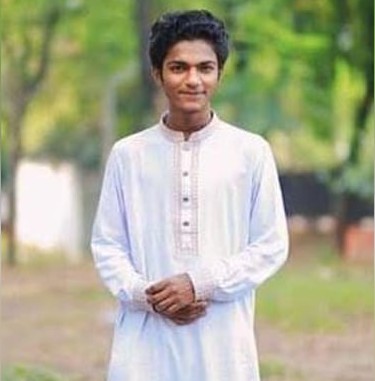In a cramped, dimly lit room in Sayedabad, Asma Begum clutches a worn-out T-shirt to her chest. It still smells faintly of detergent, sweat, and something she can’t describe—something like memory.
It belonged to her son, Ismail Hossain Rabbi.
A year ago, 17-year-old Rabbi slipped barefoot out the back door of their modest home before dawn, leaving behind his shoes, his wristwatch, and the sleeping pills his mother had given him in a desperate attempt to keep him from going out into the unrest. He never came back.
“I thought I could protect him,” Asma whispers. “I begged him not to go. I prayed. I gave him the medicine. But he tricked me—he did his ablution, prayed, and vanished before I could stop him.”
On August 4, 2024, Rabbi was shot and killed during a student protest in Dhaka’s Karatitola area. He became one of the youngest victims of the mass uprising that shook Bangladesh that year. His mother still can’t say the word “shaheed”—martyr.
“I didn’t want a hero,” she says, wiping her eyes with the edge of her faded sari. “I just wanted my son.”
Rabbi was not the kind of teenager who went unnoticed. Tall for his age, with a quick smile and stubborn convictions, he stood out. A second-year student at Shariatpur Polytechnic Institute, he was the only son in a family that scraped by on his father Miraj’s earnings as a van puller.
“He was always dreaming,” says his older sister, Mim Akhter. “He wanted to build things—machines, bridges, roads. He used to say, ‘I’ll get us out of this rented room one day, Mim. Just wait.’”
But even as he chased those dreams, Rabbi paid close attention to the world around him. His mother says he was just 11 when he made his first protest placard. On a torn piece of cardboard, he wrote: “I eat my father’s food, I wear my father’s clothes—why must I die on the streets in this country?”
He carried it in a student rally in 2018. He was in Class VI.
In July 2024, tensions across Bangladesh boiled over as students led protests over inequality, corruption, and state violence. Rabbi joined in—first in Shariatpur, where he was injured by rubber bullets, and later in Dhaka, where he traveled with fellow organizers.
“I told him, ‘You’ve already been hurt. Stay home,’” Asma says. “But he wouldn’t listen. He said, ‘Ma, what’s the point of an education if I have to stay silent?’”
That night, after Rabbi disappeared, his family began the search. Hospitals, police stations, morgues. By dawn, the worst was confirmed: his body had been found at Dhaka Medical College Hospital.
“We fainted,” Mim recalls. “He was curled up on the stretcher, like he was still trying to protect himself.”
Hospital staff initially refused to release the body. Police denied involvement. For hours, the family was caught in a bureaucratic tug-of-war, as if their son was a political liability, not a dead boy.
Eventually, it was a group of fellow student protesters—strangers to the family—who retrieved Rabbi’s body. They carried him out through a back gate and began a funeral procession. Rabbi was buried in Faridpur, in the soil of his ancestors.
His father, Miraj, 58, now breathes with difficulty, his chest weakened by years of labor and now made worse by grief. Asma, once talkative, speaks in broken whispers. They live in a silence that even time has not softened.
“He was my son,” Asma says. “But he was also my hope. Now everything feels empty.”
Mim says the family still hasn’t received any official recognition—or accountability.
“There was no investigation. No apology. Nothing,” she says. “It’s like his life didn’t matter.”
On the wall of their home, a photo of Rabbi still hangs, framed in cheap plastic. He’s smiling, holding a textbook. In the photo, he’s wearing his ring and his favorite leather shoes—both of which he left behind the day he died.
Each day, Asma stands in front of that photo and speaks softly to it.
“I still cook his favorite rice pudding,” she says. “I still set aside a portion. I still wait.”
And every day, she says the same words: “Please give me my Rabbi back.”


